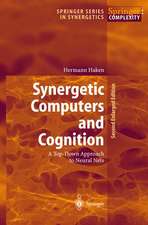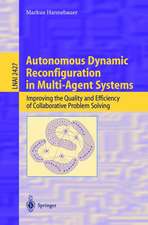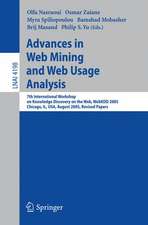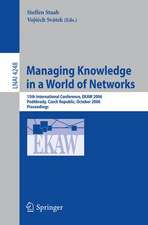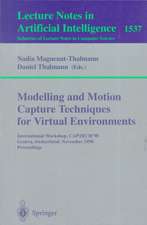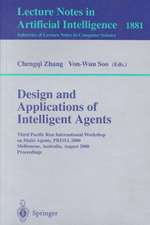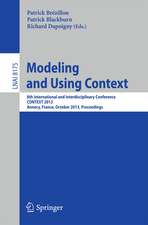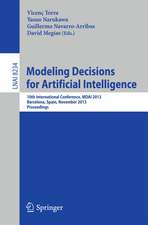Adam Smith’s Invisible Hand as Self-control Mechanism of Social Structures: Theory and Applications: Lecture Notes in Networks and Systems, cartea 477
Autor Tadeusz Szubaen Limba Engleză Paperback – 8 noi 2022
This book shows how such a computational process functions, how great is its power and versatility, since it is possible to show how discoveries are made. In 1759, A. Smith realized that there must exist an additional powerful control mechanism behind Great Britain’s authority and government, explaining the extraordinary successes of Great Britain. He called this the Invisible Hand. Despite having used this term only 3 times, the idea evokes extreme scientific and political emotions to this day. If we apply a molecular model of computation, such as in in Adleman’s DNA computer, a computational model for the Invisible Hand can be built to show how it affects a society. It is a spontaneous, unconscious, distributed, noncontinuous computational process on the platform of minds of, e.g., people or ants. Knowing this mechanism, a future self-steering and self-optimization system for AI robot teams can be proposed, e.g., for construction sites and rescue operations.
Din seria Lecture Notes in Networks and Systems
- 20%
 Preț: 1019.63 lei
Preț: 1019.63 lei - 20%
 Preț: 1286.10 lei
Preț: 1286.10 lei -
 Preț: 282.79 lei
Preț: 282.79 lei - 20%
 Preț: 1463.18 lei
Preț: 1463.18 lei - 18%
 Preț: 1105.88 lei
Preț: 1105.88 lei - 20%
 Preț: 1462.99 lei
Preț: 1462.99 lei - 20%
 Preț: 1459.86 lei
Preț: 1459.86 lei - 20%
 Preț: 1464.33 lei
Preț: 1464.33 lei - 18%
 Preț: 1398.62 lei
Preț: 1398.62 lei - 20%
 Preț: 1455.89 lei
Preț: 1455.89 lei - 18%
 Preț: 1214.72 lei
Preț: 1214.72 lei - 20%
 Preț: 999.35 lei
Preț: 999.35 lei - 20%
 Preț: 1348.81 lei
Preț: 1348.81 lei - 18%
 Preț: 966.27 lei
Preț: 966.27 lei - 20%
 Preț: 1690.34 lei
Preț: 1690.34 lei - 20%
 Preț: 1231.38 lei
Preț: 1231.38 lei - 20%
 Preț: 1317.46 lei
Preț: 1317.46 lei - 20%
 Preț: 1325.71 lei
Preț: 1325.71 lei - 20%
 Preț: 1833.90 lei
Preț: 1833.90 lei - 20%
 Preț: 1979.90 lei
Preț: 1979.90 lei - 20%
 Preț: 1948.56 lei
Preț: 1948.56 lei - 20%
 Preț: 755.70 lei
Preț: 755.70 lei - 20%
 Preț: 700.41 lei
Preț: 700.41 lei - 20%
 Preț: 2272.77 lei
Preț: 2272.77 lei - 5%
 Preț: 1898.26 lei
Preț: 1898.26 lei - 20%
 Preț: 1330.67 lei
Preț: 1330.67 lei - 20%
 Preț: 1468.26 lei
Preț: 1468.26 lei - 20%
 Preț: 988.32 lei
Preț: 988.32 lei - 20%
 Preț: 1749.74 lei
Preț: 1749.74 lei - 20%
 Preț: 1790.99 lei
Preț: 1790.99 lei - 18%
 Preț: 1107.73 lei
Preț: 1107.73 lei - 18%
 Preț: 1160.45 lei
Preț: 1160.45 lei - 18%
 Preț: 1549.36 lei
Preț: 1549.36 lei - 20%
 Preț: 1642.52 lei
Preț: 1642.52 lei - 18%
 Preț: 3101.88 lei
Preț: 3101.88 lei - 24%
 Preț: 1770.63 lei
Preț: 1770.63 lei - 18%
 Preț: 1608.06 lei
Preț: 1608.06 lei - 15%
 Preț: 577.07 lei
Preț: 577.07 lei - 20%
 Preț: 1958.48 lei
Preț: 1958.48 lei - 20%
 Preț: 1943.60 lei
Preț: 1943.60 lei - 18%
 Preț: 1404.93 lei
Preț: 1404.93 lei - 20%
 Preț: 1463.49 lei
Preț: 1463.49 lei - 18%
 Preț: 1570.03 lei
Preț: 1570.03 lei - 20%
 Preț: 1018.85 lei
Preț: 1018.85 lei - 18%
 Preț: 1229.10 lei
Preț: 1229.10 lei - 20%
 Preț: 1646.63 lei
Preț: 1646.63 lei
Preț: 768.87 lei
Preț vechi: 961.09 lei
-20% Nou
Puncte Express: 1153
Preț estimativ în valută:
147.13€ • 157.33$ • 122.67£
147.13€ • 157.33$ • 122.67£
Carte disponibilă
Livrare economică 27 martie-10 aprilie
Preluare comenzi: 021 569.72.76
Specificații
ISBN-13: 9783031062551
ISBN-10: 3031062558
Pagini: 390
Ilustrații: XXI, 390 p. 145 illus., 120 illus. in color.
Dimensiuni: 155 x 235 mm
Greutate: 0.68 kg
Ediția:1st ed. 2022
Editura: Springer International Publishing
Colecția Springer
Seria Lecture Notes in Networks and Systems
Locul publicării:Cham, Switzerland
ISBN-10: 3031062558
Pagini: 390
Ilustrații: XXI, 390 p. 145 illus., 120 illus. in color.
Dimensiuni: 155 x 235 mm
Greutate: 0.68 kg
Ediția:1st ed. 2022
Editura: Springer International Publishing
Colecția Springer
Seria Lecture Notes in Networks and Systems
Locul publicării:Cham, Switzerland
Cuprins
History of Adam Smith’s Invisible Hand hypothesis.- circumstances of its origin and further development.- Importance of Invisible Hand phenomena for human social structures and markets - from interventionism to liberalism perspective.- Prominent scientific, macro-economy personalities and politicians as supporters and critics of the Invisible Hand idea.
Notă biografică
Tadeusz Szuba is an associate professor at UPJP2 Univ. Cracow, Poland. He began research on AI in 1979 with his doctorate. Since 1986, he intensively utilizes modern computer graphics to visualize his AI research projects. This required acquiring a great deal of theoretical and practical experience in computer graphics. As a result, his teaching domain is animated 3D graphics, while he currently conducts research in the area of collective intelligence. In 2001, he published a world’s first monograph on Computational Collective Intelligence: Szuba T. Computational Collective Intelligence, Wiley & Sons NY, 2001. The presented monograph is therefore a continuation and aims to comprehensively present the problem of Adam Smith's Invisible Hand as the highest (in the sense of controlling power) form of collective intelligence.
Textul de pe ultima copertă
This book shows how such a computational process functions, how great is its power and versatility, since it is possible to show how discoveries are made. In 1759, A. Smith realized that there must exist an additional powerful control mechanism behind Great Britain’s authority and government, explaining the extraordinary successes of Great Britain. He called this the Invisible Hand. Despite having used this term only 3 times, the idea evokes extreme scientific and political emotions to this day. If we apply a molecular model of computation, such as in in Adleman’s DNA computer, a computational model for the Invisible Hand can be built to show how it affects a society. It is a spontaneous, unconscious, distributed, noncontinuous computational process on the platform of minds of, e.g., people or ants. Knowing this mechanism, a future self-steering and self-optimization system for AI robot teams can be proposed, e.g., for construction sites and rescue operations.
Caracteristici
Provides an extensive background of scientific foundations & explanations connected around Adam Smith’s Invisible Hand Presents the idea and approaches of using “Invisible Hand ” as a control paradigm for teams of AI robots Presents formal and computational models providing a proof that Adam Smith’s Invisible Hand is not a myth
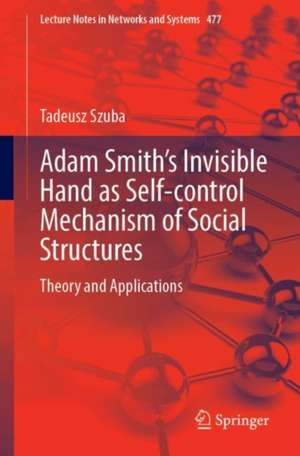


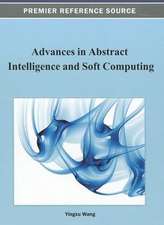
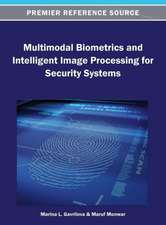
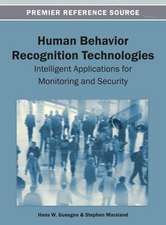
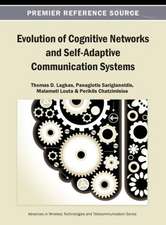
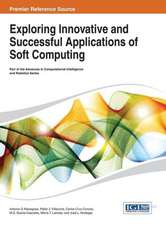



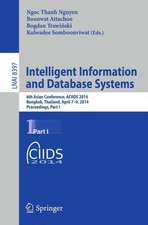
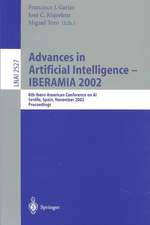
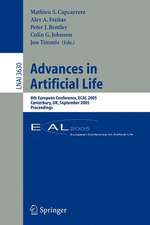
![OMDoc -- An Open Markup Format for Mathematical Documents [version 1.2]: Foreword by Alan Bundy](https://i2.books-express.ro/bt/9783540378976/omdoc-an-open-markup-format-for-mathematical-documents-version-1-2.jpg)
